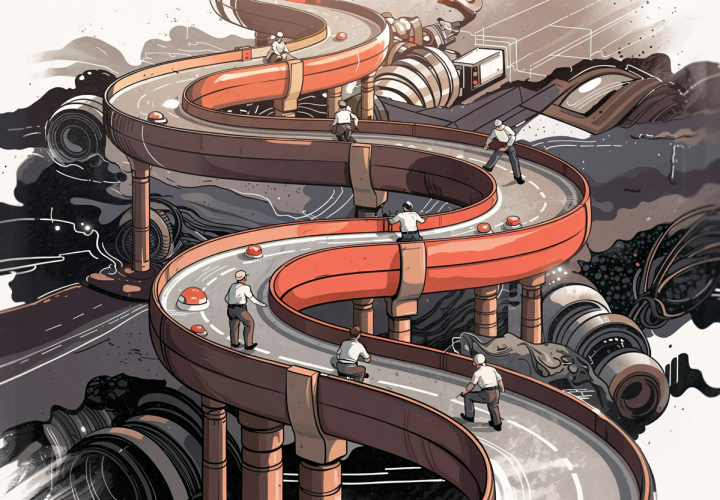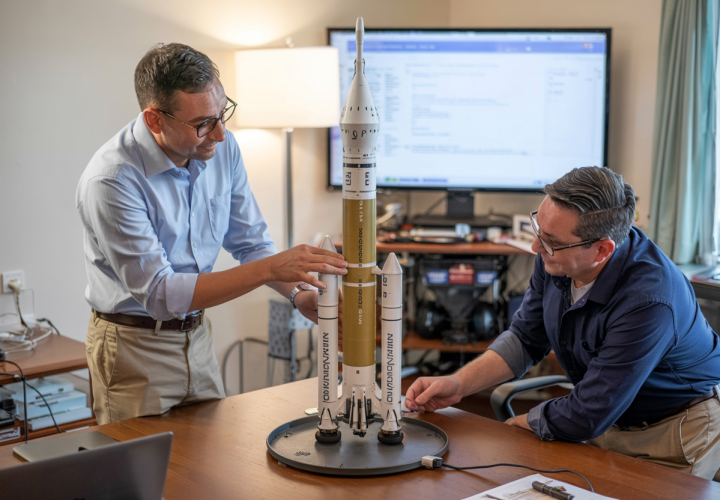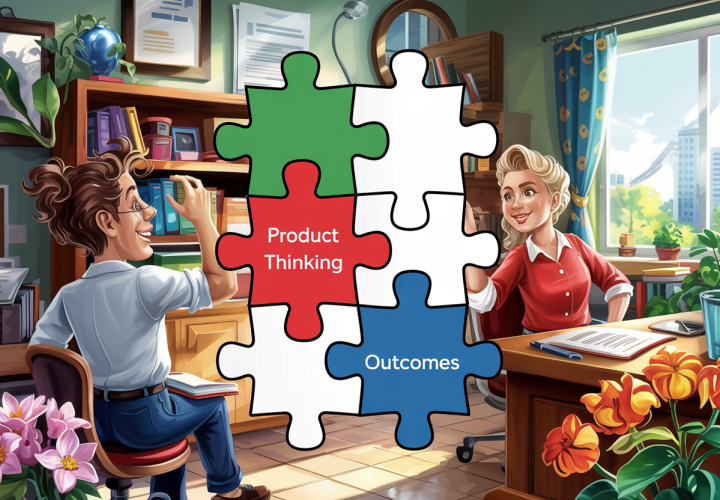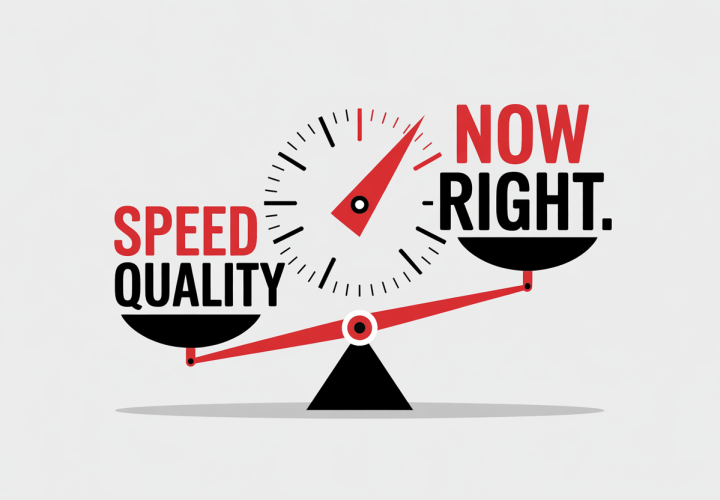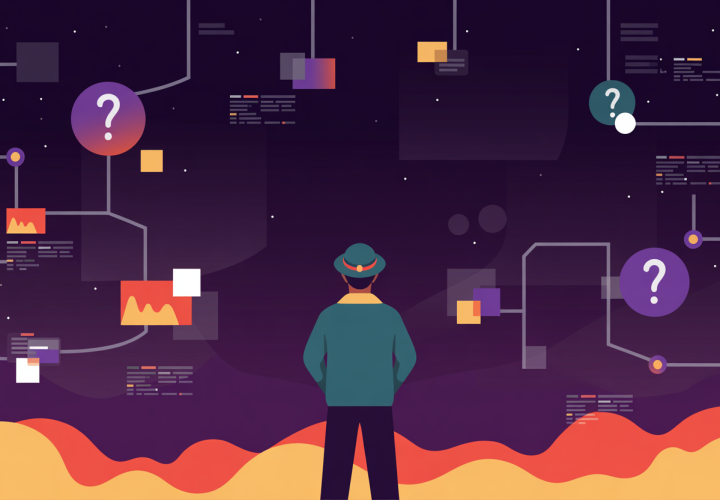Data vs. Intuition: Striking the Right Balance in Product Development
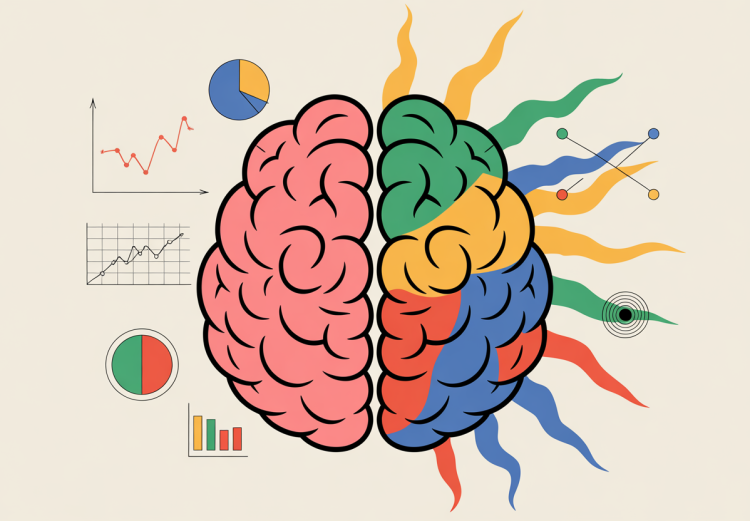
In the business world today, represent not only your businessnalism. In the business world today. In the business world today.
Data vs. Intuition: Striking the Right Balance in Product Development Data tells you what is.Intuition helps you imagine what could be. And when product teams lean too far in either direction, things start to break. You end up stuck in analysis paralysis.Or launching bold ideas no one asked for. The best product teams know how to blend evidence with instincts.They know that great judgment is built—not just on spreadsheets or gut feelings—but by using both at the right time. Let’s explore how to get that balance right. Why the Debate Exists in the First Place The tension between data and intuition isn’t new—but it’s louder than ever. The Rise of Data-Driven Everything Analytics platforms. Dashboards. OKRs.Data has become the default decision-making language.And for good reason—data helps us reduce risk and prove impact.But too much faith in data can also lead to decisions by spreadsheet, not by people. Intuition Still Drives Breakthrough Ideas Intuition isn’t guesswork—it’s pattern recognition built over time.Some of the best product moves started with a hunch: “This doesn’t feel right.” “What if we flipped it?” “I think there’s something here.”You need room for that. Polarized Thinking Creates the Wrong Choices It’s not a battle between logic and gut—it’s a balance.When you force a choice between data or instinct, you miss the combined power of both. Where Data Wins—And Where It Doesn’t Data is critical—but it’s not always conclusive, or enough. Data Validates Patterns, Not Possibilities Data is great at telling you what’s happened.It can show you trends, behaviors, and correlations.But it doesn’t always reveal unmet needs or future desires—it’s backward-looking.You still need imagination. Metrics Can Guide, But They Can’t Lead Metrics help you measure success.But if you lead with them too early, they can box in creativity.Ask: What does this number really tell us? What’s missing from this picture?Let data support your story—not write it for you. Over-Reliance on Data Can Stall Innovation Waiting for perfect data can become an excuse not to act.Some of the most impactful product bets happen before the data is clear.That’s where courage comes in. The Real Role of Intuition in Great Product Teams Intuition is often misunderstood.It’s not magic—it’s insight built over time. Intuition Is Often Informed by Experience The more you’ve seen, the more patterns your brain picks up.That feeling that something’s off?It’s probably right—because it’s rooted in experience.Smart teams trust those instincts—and then test them. It Helps You Act When Data Is Missing or Incomplete You won’t always have clean data or plenty of time.In those moments, you need people who can say:“Let’s try this first. Then we’ll measure what happens.”That’s good intuition at work. Intuition Should Be Testable—Not Untouchable The best product thinkers don’t just say, “I have a hunch.”They say:“Here’s what I think, and here’s how we can test it.”Intuition becomes powerful when it invites feedback—not when it ends the conversation. How to Make Better Decisions by Blending Both This isn’t about favoring one side—it’s about building a rhythm where both can show up at the right time. Ask Better Questions, Not Just for Better Numbers Start with: What are we trying to learn? What do we already believe? What would change our mind?These questions lead to useful data and honest reflection. Start with Intuition, Validate with Data Gut first. Test second.Use your intuition to guide ideas and your data to confirm (or correct) the path.It’s not sequential—it’s a feedback loop. Don’t Wait for Certainty—Act with Confidence and Humility Certainty is rare in product work.Great teams move forward with informed bets, ready to course-correct.The key is confidence with humility:“We believe this is right. We’ll find out.” Better Products Come from Balanced Thinking If you only trust data, you’ll miss the spark.If you only trust intuition, you’ll miss the truth.Product decisions demand both: Intuition to explore Data to verify Discipline to learn Humility to changeThe best products come from teams who don’t pick sides—they use both sides of the brain.

